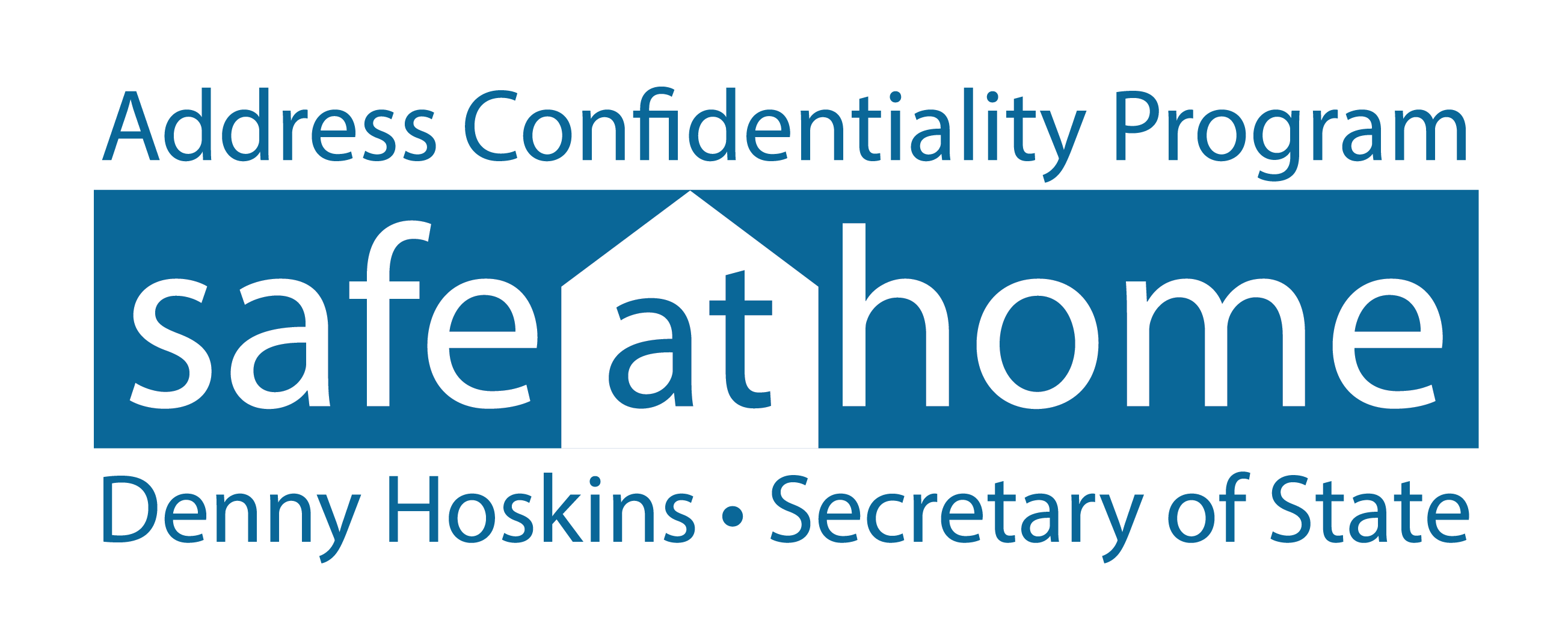
About Safe at Home
The Safe at Home address confidentiality program helps protect victims of domestic violence, rape, sexual assault, human trafficking, stalking, or other crimes who fear for their safety, as well as the safety of individuals residing in the same household as the victim, by authorizing the use of a designated address for such victims, their minor children, and individuals residing with them. In addition, the program allows participants to use the designated address on new records created by government agencies and the courts. Examples of new records include:
- Driver’s license, non-driver’s license and vehicle registration
- Voter registration
- Public school records
- Social services records for food stamps, cash assistance, child support, WIC, etc.
- Public library cards
- City or county records
- Law enforcement and court records
Government agencies and the courts must accept the substitute address of a participant in place of a home, work, school or mailing address. Participants may have their first-class mail, legal mail and certified mail sent to the substitute address, and then the secretary of state's office will forward the mail to the participant’s confidential mailing address at no cost to the participant.
Safe at Home may be right for:
- Survivors of domestic violence, sexual assault, stalking, human trafficking, rape or other crimes.
- Victims of crime who have recently relocated or are planning to relocate because they fear future harm.
- Individuals who understand that Safe at Home is one piece of a comprehensive safety plan.
- Residents of Missouri.
Additional Information